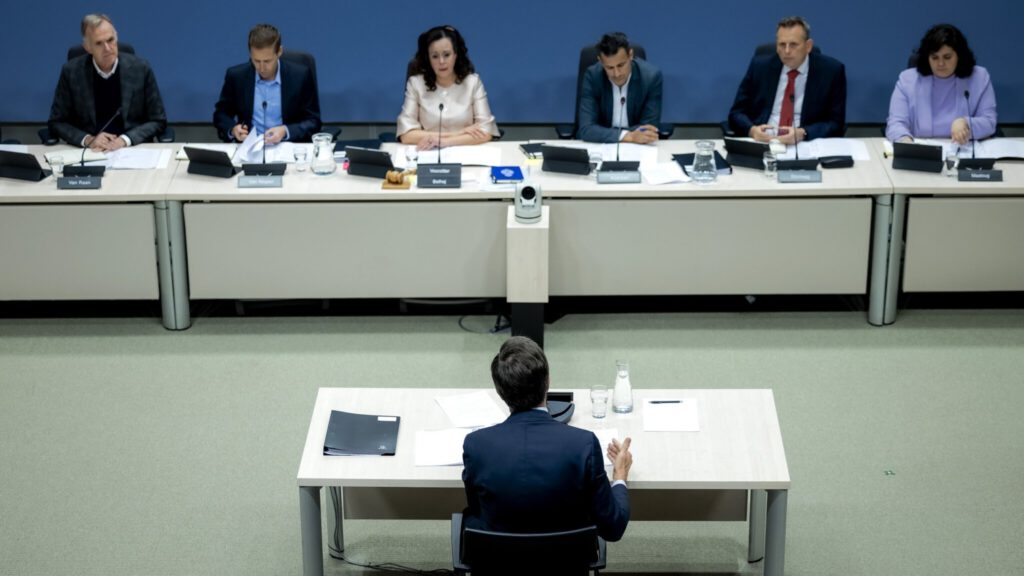
Dit is nou precies de kramp waar we in Nederland terecht kunnen komen. Het wantrouwen, dat de informatie – die platformbedrijven op grond van Europese regelgeving moeten doorgeven aan de Belastingdienst – mensen in de bijstand onterecht als fraudeur zou kunnen aanmerken. Daar wil het artikel in NRC (NRC 4/3/24 artikel Marloes de Koning) voor waarschuwen, indachtig het laatste rapport van de parlementaire enquêtecommissie over het fraudebeleid van de Nederlandse overheid in de laatste jaren. Een dergelijk schandaal als de Toeslagenaffaire kan zo weer gebeuren, zegt voorzitter Michiel van Nispen. De informatie-uitwisseling van de Belastingdienst richting de sociale dienst van de gemeente loopt al van oudsher.
https://wetten.overheid.nl/BWBR0010092/1993-01-01/0
In feite een legale inbreuk op de geheimhoudingsplicht van de belastingdienst in de strijd tegen misbruik van uitkeringen. Later ingebed in de Algemene wet inzake rijksbelastingen
https://www.eerstekamer.nl/wetsvoorstel/30322_versterking_fiscale
Daar loopt de nieuwe informatiestroom van de platformbedrijven ‘gewoon’ in mee. Het is dus niet de Belastingdienst, maar de gemeente die de ‘menselijke maat’ in het toezicht op dit punt moet hanteren. Wil je het risico 100% uitsluiten, dat bijstanders door de gemeente onterecht in de fuik van fraude terecht komen, dan zou de informatie-uitwisseling – niet alleen van de platformbedrijven – tussen Belastingdienst en gemeente moeten stoppen. Op dit punt krijgt Michiel van Nispen dan waarschijnlijk géén gelijk. De waarschuwing is terecht. Maar laten we toch vooral het vertrouwen geven, dat de gemeenteambtenaar bij de verwerking van de informatie van de Belastingdienst de lessen uit het rapport Blind voor mens en recht ter harte neemt en de ‘menselijke maat’ geen loze inhoud geeft.
This is exactly the cramp we can end up in in the Netherlands. The distrust that the information – which platform companies must pass on to the Tax Authorities under European regulations – could wrongly designate people on social assistance as fraudsters. The article in NRC (NRC 4/3/24 article Marloes de Koning) wants to warn about this, bearing in mind the latest report of the parliamentary inquiry committee on the fraud policy of the Dutch government in recent years. A scandal like the Benefits Affair could happen again, says chairman Michiel van Nispen. The exchange of information from the Tax Authorities to the social services of the municipality has been going on for a long time. https://wetten.overheid.nl/BWBR0010092/1993-01-01/0 In fact, a legal violation of the tax authorities’ duty of confidentiality in the fight against abuse of benefits. Later embedded in the General Act on State Taxes https://www.eerstekamer.nl/wetsadvies/30322_versterking_fiscale
The new information flow from the platform companies ‘simply’ follows suit. It is therefore not the Tax Authorities, but the municipality that must apply the ‘human scale’ in supervision on this point. If you want to eliminate 100% of the risk that assistants are wrongly caught in a fraud trap by the municipality, the exchange of information – not just from the platform companies – between the tax authorities and the municipality should stop. Michiel van Nispen is probably not right on this point. The warning is justified. But above all, let us give the confidence that the municipal official, when processing the information from the Tax Authorities, takes the lessons from the report Blind for people and law to heart and does not give the ‘human dimension’ empty meaning.
Ricky Turpijn


